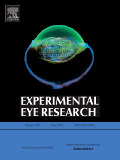
“Retinal ischemia is a pathological event present in several retinopathies such as diabetic retinopathy and glaucoma, leading to partial or full blindness with no effective treatment available.
Since synthetic and endogenous cannabinoids have been studied as modulators of ischemic events in the central nervous system (CNS), the present study aimed to investigate the involvement of cannabinoid system in the cell death induced by ischemia in an avascular (chick) retina.
We observed that chick retinal treatment with a combination of WIN 55212-2 and cannabinoid receptor antagonists (either AM251/O-2050 or AM630) decreased the release of lactate dehydrogenase (LDH) induced by retinal ischemia in an oxygen and glucose deprivation (OGD) model.
Further, the increased availability of endocannabinoids together with cannabinoid receptor antagonists also had a neuroprotective effect.
Surprisingly, retinal exposure to any of these drugs alone did not prevent the release of LDH stimulated by OGD.
Since cannabinoids may also activate transient receptor potential (TRP) channels, we investigated the involvement of TRPA1 receptors (TRPA1) in retinal cell death induced by ischemic events.
We demonstrated the presence of TRPA1 in the chick retina, and observed an increase in TRPA1 content after OGD, both by western blot and immunohistochemistry.
In addition, the selective activation of TRPA1 by mustard oil (MO) did not worsen retinal LDH release induced by OGD, whereas the blockage of TRPA1 completely prevented the extravasation of cellular LDH in ischemic condition.
Hence, these results show that during the ischemic event there is an augment of TRPA1, and activation of this receptor is important in cell death induction.
The data also indicate that metabotropic cannabinoid receptors, both type 1 and 2, are not involved with the cell death found in the early stages of ischemia. Therefore, the study points to a potential role of TRPA1 as a target for neuroprotective approaches in retinal ischemia.”
